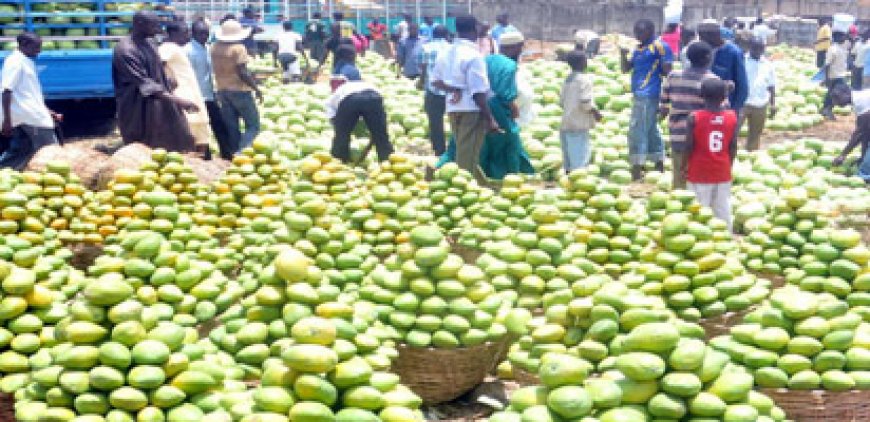Mango production still below one million tonnes

Nigeria’s annual mango production is still below one million tonnes annually, according to data accessed by The Nation. The production stood at 968,780 metric tonnes. This places Nigeria at 10 and 12 positions at times.
The mango market size grew from $63.65 billion last year to $67.95 billion this year at a compound annual growth rate (CAGR) of 6.7 per cent, according to The Business Research Company report.
In a study of the top producers from Economic Community of West African States(ECOWAS), Nigeria contributed 1.5 per cent of global production, Mali 1.0 per cent , Guinea 0,3 per cent, Senegal 0.3 per cent, Côte d’Ivoire 0.3 per cent and Niger 0.3 per cent.
The Director General, African Centre for Supply Chain, Dr Obiora Madu, regretted that the mango industry had recorded significant drops in production volumes.
He attributed this to failure on the path of the government to address lingering challenges across the value chain. He believes that the biggest problem the local mango industry has is the that it has not received attention as an export crop.
The Chairman, Board of Trustees, Federation of Agricultural Commodity Association of Nigeria (FACAN) President, Dr. Victor Iyama, believes the nation can generate more than $100 billion in foreign exchange for the country if attention is given to developing export commodities. He noted that there were few people growing mango.
He said: “There are a few plantation owners. Generally it is widely grown . We have to make concerted efforts to grow it.”
Deploy improved varieties. Grow more organic mangoes to fetch premium prices at the international market. Our main export commodities remain cocoa,cashew, sesame ,hibiscus .However, they are not growing much of these commodities.”
National Association of Mango Producers, Processors and Marketers of Nigeria (NAMPPMAN) had appealed to Nigerians to leverage on the economic benefits of the produce to boost their income.Its National President of the association, Alhaji Abdulkadir Nasir, emphasised that besides generating income to small scale farmers, mango contributes to the Gross Domestic Product (GDP) and export earnings of a country.He stressed that diversification into fruit production could generate huge employment and enable small scale farmer to embark on a range of production, processing and marketing activities.According to him, this can complement existing income generating activities.
“In Nigeria, despite a structural shift toward industrialisation, agriculture still contributes 21.8 per cent to the Gross Domestic Product (GDP)”.
“It is a source of livelihood of about 45 per cent of total employed labour forces and contributes significantly in the export earnings.
“The potential of mango export has, however, not been fully achieved”.
“Marketing fresh and processed fruit products generates income which can act as an economic buffer and seasonal safety net for small scale farmers,’’ he said.
He explained that 400 stands of mango trees planted in one hectare of land can generate about N600,000 per season.
He noted that with the improved seedlings, mangoes could mature and yield fruits before three years.
Mango trees are used in agroforestry systems for soil conservation and erosion control.









